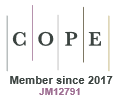Gene sequences, collaboration and analysis of large data sets
Mark W. Chase and Antony V. Cox
Australian Systematic Botany
11(2) 215 - 229
Published: 1998
Abstract
DNA sequences are well suited to international collaboration due to the universality of their simple nature, making them easy to be exchanged and understood. In addition, the output of modern automated sequencers is electronic, making the raw data themselves easy to exchange electronically. Software programs have also been significantly improved, and researchers are tending to focus on standardised ones, which contributes to increased ease of communication. The major problem confronting modern systematics is that large analyses, made possible by all the technological improvements in DNA sequencing and the ability of widely separated researchers to pool data, have been viewed as untenable, simply due to their size. We present evidence here that such large analyses are not as impractical as has been thought, particularly those that are combined analyses of multiple genes. When there is increased signal, as there is in many combined analyses, starting trees generally are much closer to the ultimate shortest trees than any of the individual analyses. Combined with increased ease of analysis, the large angiosperm matrices are providing congruent ideas about relationships, and this makes possible the initiation of the re-classification process, which should also utilise the capacity for rapid information transfer by electronic media. The first truly synthetic and phylogenetic angiosperm classification is in reach, and it should ideally involve all interested systematists in its production, making it also the first broadly collaborative taxonomic system.https://doi.org/10.1071/SB97010
© CSIRO 1998


